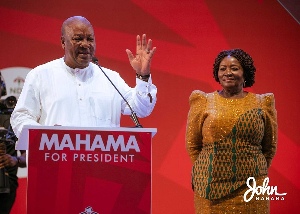Many children is the U.K and other developed world enjoy brilliant early years education which is a secure foundation for a country. This is planned through educational strategies set through formal framework underpinned policies for example, the Children Act 1989, The Children Act 2004- Every Child Matters document, more recently Munro review final report 2010 and many more. In contrast, reflecting on vulnerable children in Ghana who no provision have been made for them and schooling at early years means under the tree education.
Which aspect of the children’s rights education allow any Government to continue to accept educating the vulnerable children under the tree and think this is acceptable. Regretably under the tree form of education is the norm in some parts of Ghana. Is this correct? Doesn’t the Minister of Education has a legal obligation to respect the rights of the children and implement the Convention and protect of Human rights for children in Ghana too or the Convention does not apply? In Ghana most parents and children are unaware that they can fight through Human right courts to have purposeful building instead of accepting to be educated under the tree. They can be bold and hold the Minister of Education to account and challenge her to conduct a risk assessment as to their health and educational needs. No-one should vote for any Party who allows its vulnerable children, tomorrow’s future to be educated under the trees or and in classroom without furniture and assume that is acceptable ? Many Government Ministers value the good education but for their own children so they send theirs in the U.K and USA whilst leaving the Ghana’s vulnerable children to be educated under the tree. Is this fair? If we have Equality Act 2010 in Ghana as we do in the U.K these children would not educated under the tree to put at risk with all the weather conditions. Has the Government done any recent research of lessons missed by these group of children? Some organisations in the U.K for example, Agave Development Association( a voluntary organisation in the U.K) have no choice but to invest in providing primary schools in the Agave District with tables and chairs. Children in Ghana should be encourage and motivated to fight for better education by having the deeper knowledge about their basic entitlement from Governments. If Government are failing our children then the only solution is to empower our children to take action in support of the rights of others very seriously. This challenging spirit should be encouraged in all communities through community leaders for communities to have purposeful primary school with basic ameneties. I am waiting for the Minister of Education to reddress these human right abuses currently happening through in some parts of our country.
Action plan within the next two years: All primary schools in Ghana are entitled to the construction of a purposeful infrastructure with basic ameneties in order to address the basic rights of children. It is about time parents and children take a stand in preventing or redressing human rights abuses. The Government appears to be either delibrately putting children at risk through neglect (lack of purposeful classrooms) or turning a blind eye to under the tree form of education. Firstly, I believe that all schools in Ghana should include Children Rights Education so that our children would also have an accurate and adult- mind in understanding of rights. Such a move would facilitate better understanding that their rights and responsibilities are related and to display socially responsible behaviours in support of the rights of others. Secondly, I recommend that Ghana also follows the United Nations of the Convention on the Rights of the Child 1989 and start working towards efforts to provide all our children a standard children’s rights education in all school instead of the cherry picking of schools.
Opinions of Friday, 7 November 2014
Columnist: Bolus, Mercy Adede















